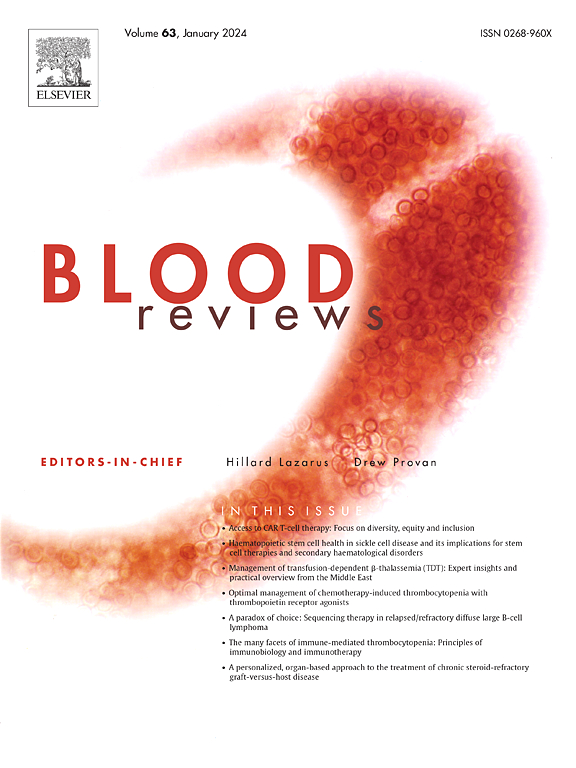A personalized, organ-based approach to the treatment of chronic steroid-refractory graft-versus-host disease
Abstract
Chronic graft-versus-host-disease (cGvHD) remains the leading cause of morbidity among transplant recipients. The efficacy of second-line treatments varies widely based on many factors, including wide differences in the organ overall response-rate response and in the current era where multiple agents are approved, and optimal sequencing of drugs based on organ ORR is unknown. We aimed to evaluate outcomes based on ORRs to the most common agents for the treatment of steroid-refractory/steroid-dependent cGvHD by conducting a systematic literature review. A total of 387 studies were evaluated for the ORRs of 12 cGvHD treatments. The highest skin ORR was observed to be 77% though some agents had an acceptable ORR. Most agents had an ocular response ranging from 17 to 50% Some agents resulted in a GI ORR of ≥88%. Rituximab showed the best response for musculoskeletal-GvHD. In the case of lung-GvHD (bronchiolitis obliterans syndrome [BOS]), negligible response was observed in patients treated with various agents. No clinically meaningful responses to treatments were reported for genital-GvHD. Most GvHD trials are focused on the ORR and partial response rates (PRR). The evidence for optimal agents for each organ is limited, and therefore, our study results are striking for differences in organ-ORR yields for a clinically meaningful difference. Thus, a personalized organ-based approach to the selection of therapeutic agents in cGvHD could result in favorable outcomes.

 求助内容:
求助内容: 应助结果提醒方式:
应助结果提醒方式:


